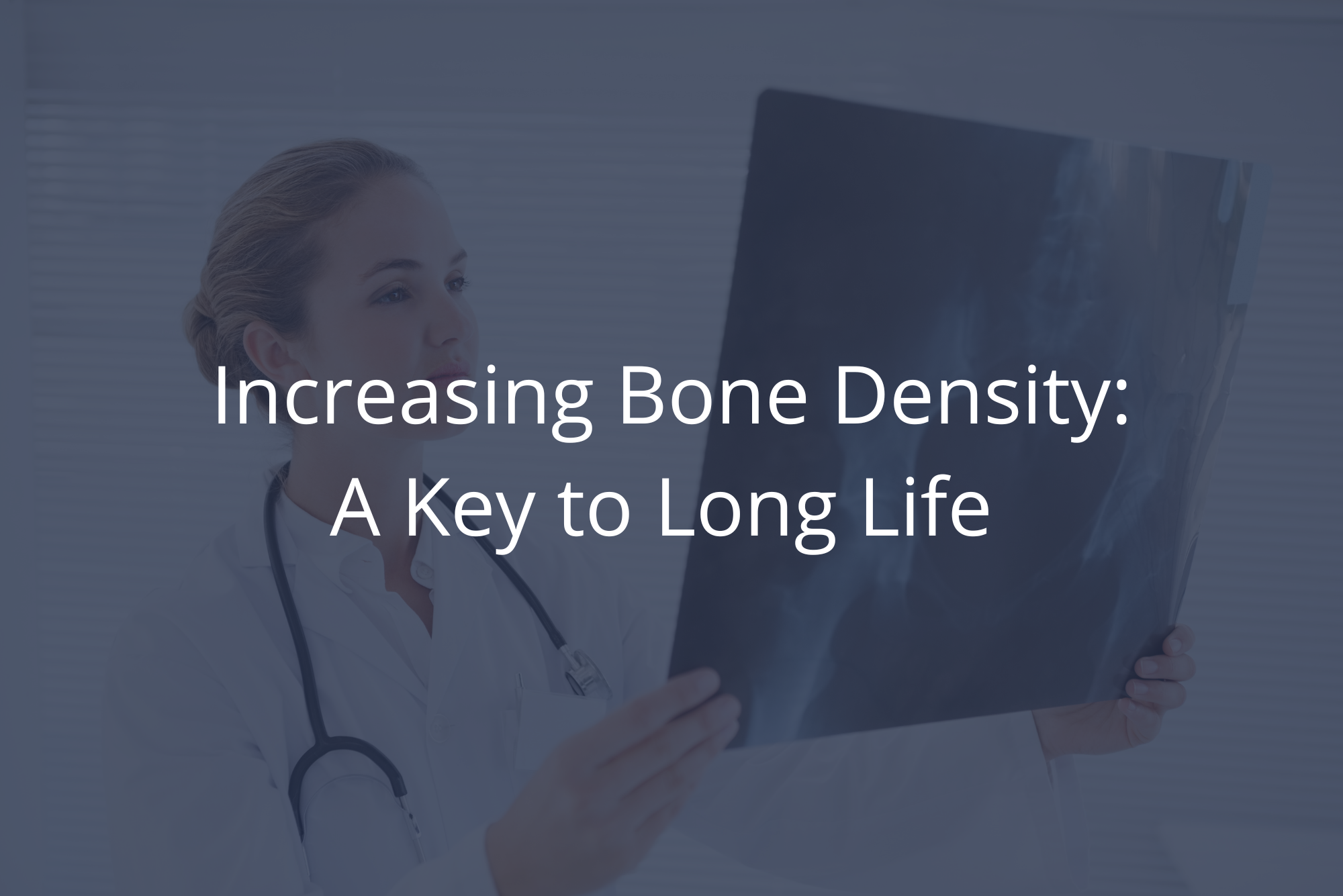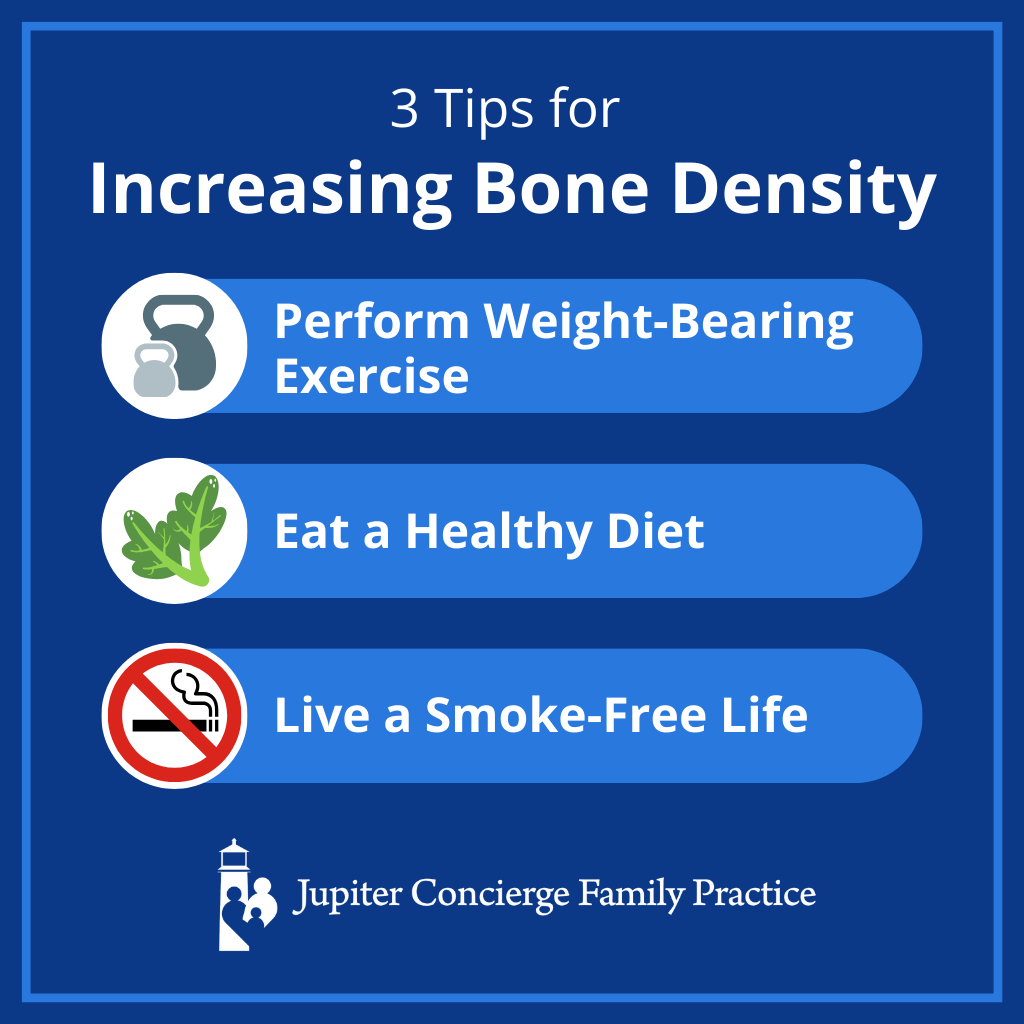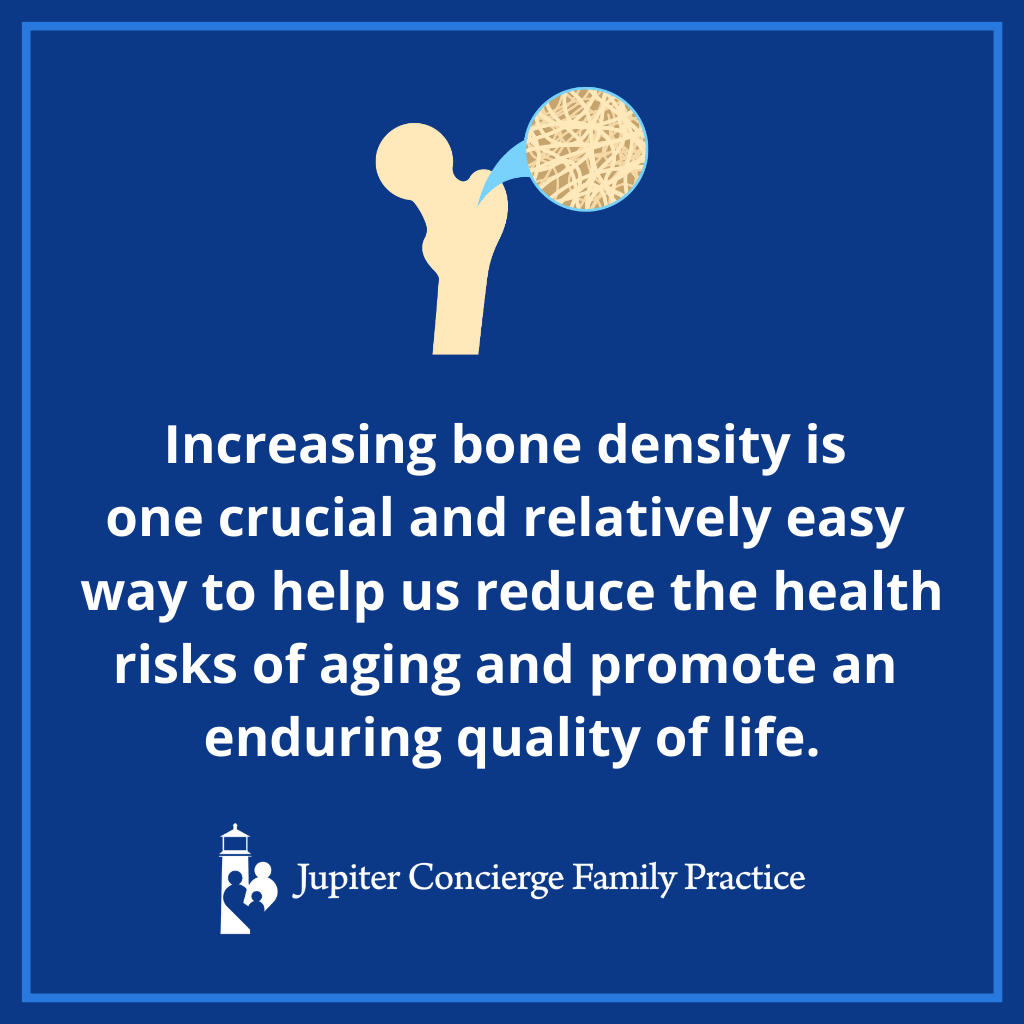
Sometimes life’s most fundamentally critical components are invisible. They’re so reliable that we often fail to notice them — as long as they continue working well. This can be the case with our body’s most basic frame: our skeleton.
As we age, it becomes ever more important to take note of our bone health before it becomes a problem. Here, we’ll discuss increasing bone density in relation to its effect on longevity.
The Reason for Increasing Bone Density
I often find that bone density is one of those things people have heard of, but that they may not have a firm footing in. I’ve previously covered bone density scans — what they are and what they can tell you — so I’ll focus here on the role of bone density in healthy aging.
An assessment of bone mineral content, bone density is an important measure of bone strength and — as a result — fracture risk. This is important to longevity because increased bone fractures lead to mobility loss, and mobility loss increases all-cause mortality.
Throughout life, the human body is continually renewing and remaking itself, including our bones. Our bodies constantly break down and build up bone, maintaining a balance that depends on external stimulus (how we use our bones) and adequate nutrition (what resources we supply our bones).
Many factors can upset the balance between bone building and bone breakdown, such as:
- Eating processed foods
- Smoking
- Drinking alcoholic and carbonated beverages
- The aging process in general
If our bodies start to break down bone faster than they build it, our bone density gradually decreases. If not intercepted and corrected in time, runaway catabolism results in osteoporosis and a significantly increased risk of fracture.
Increasing bone density, then, is a strong move in a health-conscious long game.
3 Tips for Increasing Bone Density
With all the benefits of solid bones, it’s a no-brainer to maintain bone health and improve your odds of healthy aging by increasing bone density.
Whether your bone density has already started to decline or you want to get ahead of bone loss, three simple but powerful tips can help you maintain and even increase bone density.
Perform Weight-Bearing Exercise
Weight-bearing exercise directly stimulates bone development by increasing anabolism over catabolism. Before you jump into a new exercise routine, however, be sure to consult your doctor to make sure you don’t injure yourself at the gym.
Eat a Healthy Diet
Eating a healthy diet is a great way to increase your bone density. Here are a few key practices:
- Eat enough green, leafy vegetables. Rich in calcium, vitamin D, and vitamin K, leafy vegetables provide a wide array of nutrients necessary for bone health.
- Consume enough protein. Protein is the building block for everything structural in your body. Protein-rich foods include meat, poultry, eggs, and legumes.
- Don’t under-consume calories. This can be common with restrictive diets. When you don’t get enough calories, especially in crucial forms like protein, you don’t just stop burning fuel. If your body doesn’t get what it needs from food, it starts breaking down muscle and bone to get the nutrients it needs.
Pick foods that suit you and your body, and cut down on convenience and processed foods. If you have to buy packaged foods, look for short ingredient lists that contain pronounceable words. I recommend sticking to the perimeter of the grocery store for the healthiest options.
Live a Smoke-Free Life
Most people know by now that smoking is a risky act with far-reaching consequences, such as lung and throat cancer, heart attacks, and chronic obstructive pulmonary disease (COPD). What you may not know is that smoking also promotes the catabolism of bones and increases oxidative stress — two of the four pitfalls of health — thus contributing to the development of osteoporosis.
Conclusion
There’s no stopping the aging process, but by focusing on the Four Pillars of Health — and avoiding the pitfalls — we can contribute to healthy longevity. Increasing bone density is one crucial and relatively easy way to help us reduce the health risks of aging and promote an enduring quality of life.

Dr. David Rosenberg
Dr. Rosenberg is a board-certified Family Physician. He received his medical degree from the University of Miami in 1988 and completed his residency in Family Medicine at The Washington Hospital in Washington, Pennsylvania in 1991. After practicing Emergency Medicine at Palm Beach Gardens Medical Center for two years, he started private practice in Jupiter, in 1993. He is an avid baseball fan and Beatles fanatic, since he was 8 years old. He has been married to his wife, Mary, since 1985 and has three grown children.
David completed additional studies at Mercer University, Macon, Georgia and obtained a BS in Chemistry in 1983.
“My interests include tennis, snow skiing, Pilates and self-development.”


